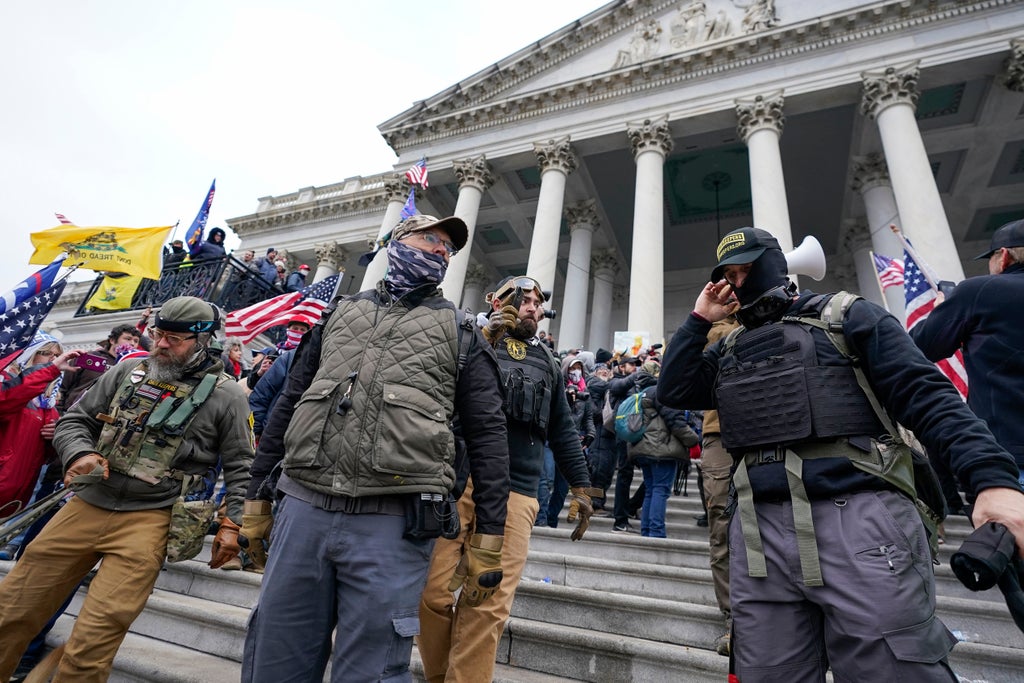
An 1872 law granting amnesty to former Confederate traitors cannot be applied to supporters of the 6 January 2021 insurrection seeking to escape challenges to their eligibility to appear on the ballot, a three-judge panel of the Fourth Circuit Court of Appeals has said.
The Richmond, Virginia-based court rejected a North Carolina district judge’s decision to block a challenge to Representative Madison Cawthorn’s eligibility by a group of voters who argued that he was ineligible to appear on a North Carolina ballot because he had “engaged in insurrection or rebellion” against the Constitution of the United States by supporting former president Donald Trump’s push to throw out results of the 2020 election and install himself for a second term against the wishes of American voters.
Although Mr Cawthorn will not appear on a general election ballot in November because he lost last week’s North Carolina primary election, Judge Toby Heytens said he and his colleagues had nonetheless gone forward with the case because the election had not yet been certified and controversies regarding supporters of the 6 January attack on the Capitol were “reasonably likely to reoccur”.
“The issue currently before us is whether that same 1872 legislation also prospectively lifted the constitutional disqualification for all future rebels or insurrectionists, no matter their conduct. To ask such a question is nearly to answer it ... we hold that the 1872 Amnesty Act removed the Fourteenth Amendment’s eligibility bar only for those whose constitutionally wrongful acts occurred before its enactment,” Judge Heytens wrote.
“Having specifically decided to withhold amnesty from the actual Jefferson Davis, the notion that the 1872 Congress simultaneously deemed any future Davis worthy of categorical advance forgiveness seems quite a stretch”.
He explained that “the most fundamental problem” with Mr Cawthorn’s claim that the 1872 Amnesty Act barred the 14th Amendment’s disqualification clause from being invoked against him is that it is “backward-looking” because it refers to removing “all political disabilities imposed by the third section of the fourteenth article of amendments of the Constitution of the United States” “on all persons whomsoever”.
“Here, Congress employed the past-tense version, indicating its intent to lift only those disabilities that had by then been ‘imposed,’” he said. “The operative clause’s principal verb—‘removed’ — reinforces this conclusion”.
He added that there is no evidence that the members of Congress who voted on the 1872 law intended it to grant amnesty to those who engaged in insurrections in the future.
A spokesperson for Free Speech for People, the watchdog group which aided the North Carolina voters’ challenge to Mr Cawthorn’s eligibility, called the ruling a “major victory” that “cements the growing judicial consensus that the 1872 Amnesty Act does not shield the insurrectionists of January 6, 202 — including Donald Trump — from the consequences of their actions under the Fourteenth Amendment, and provides no basis to block state proceedings seeking to exclude insurrectionists from the ballot”.
The Fourth Circuit ruling marks the second time a court has said the 1872 Amnesty Act does not apply to challenges to candidates who are accused of supporting the pro-Trump insurrection.
Last month, a Georgia federal district judge said Georgia voters could challenge Representative Marjorie Taylor Greene’s eligibility to appear on the ballot on grounds that she was ineligible under the disqualification clause, but a Georgia administrative judge later ruled that Ms Greene did not engage in insurrection and said she could appear on the ballot.







